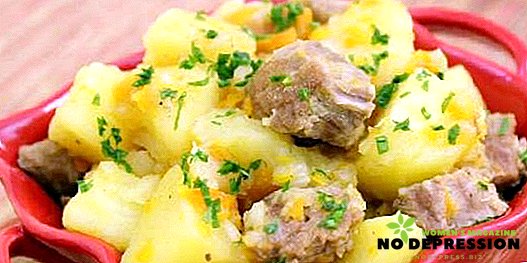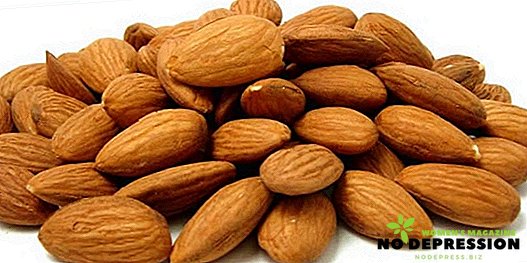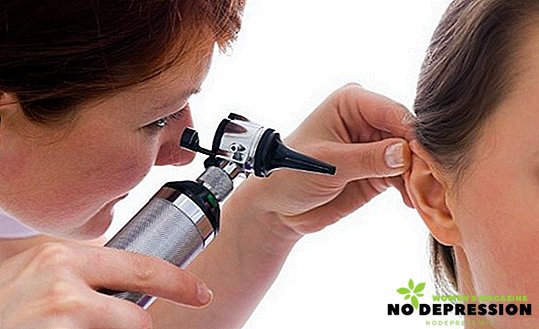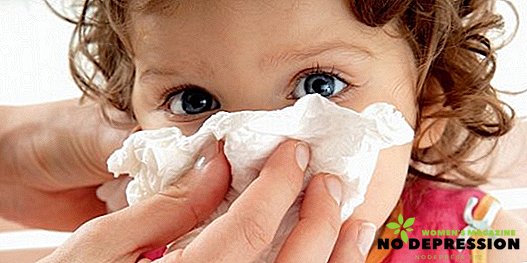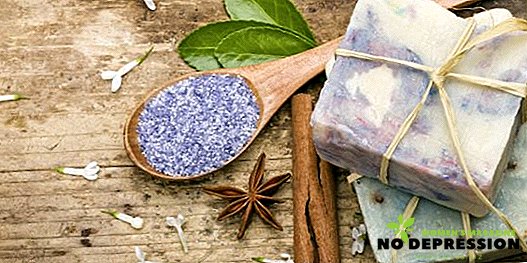Ginkgo biloba is one of the oldest cultures on Earth, has many healing properties. The value of the plant and contraindications to use have been identified by eastern healers. Ginkgo biloba is used to make tinctures and extracts, but if it is used improperly, the body can suffer enormous harm.
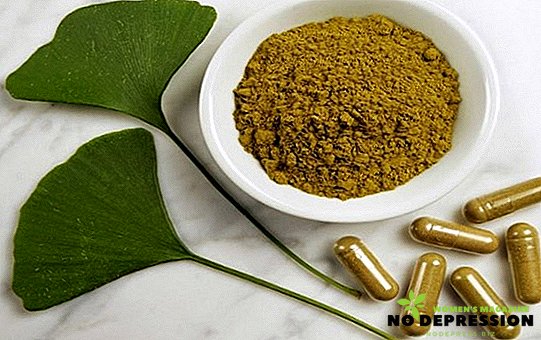
What is ginkgo biloba
Culture belongs to the relict form and has been growing on Earth for many millions of years. The trunk of the ginkgo biloba is covered with smooth bark of brown color, and the leaves are painted green.
The plant tolerates cold weather and is resistant to various types of infections. In addition, the culture successfully survives in a polluted atmosphere.

May is considered the main flowering period of the plant, and after pollination yellow fruits form on it. Their appearance resembles nuts, inside of which is a core with pulp. Such a culture is propagated by vegetative means with the help of seeds.
The leaves are endowed with a mass of healing properties, and this is due to their composition. Culture contains such beneficial components as terpenes, flavone glycosides, minerals, starch, steroids, wax and alkaloids.
Healing opportunities
Since ancient times, ginkgo biloba is used for therapeutic purposes in the fight against various types of pathologies. The advantage of such a plant is that it contains a unique ginkgolide, which helps to make the vessels more elastic.
Ginkgo biloba helps with the treatment of various pathologies in chronic form and inflammatory processes, as well as improves the immune system in the fight against infectious agents. Extract is recommended to drink to those patients who are undergoing treatment aimed at eliminating the effects of bronchial asthma, arthritis and other pathologies.
 Taking drugs with the addition of ginkgo biloba is recommended for people who are constantly experiencing emotional and mental overload. The plant successfully fights with vertigo, migraine and promotes the expansion of capillaries. Ginkgo biloba has a positive effect on the state of the nervous system and helps get rid of increased irritability. With it, you can cope with mood swings, anxiety and depression.
Taking drugs with the addition of ginkgo biloba is recommended for people who are constantly experiencing emotional and mental overload. The plant successfully fights with vertigo, migraine and promotes the expansion of capillaries. Ginkgo biloba has a positive effect on the state of the nervous system and helps get rid of increased irritability. With it, you can cope with mood swings, anxiety and depression.
Plant based preparations are recommended for use in therapy:
- swelling of the brain;
- dyscirculatory encephalopathy of a different nature;
- insomnia;
- memory impairment;
- varicose veins;
- thrombophlebitis;
- hearing and vision problems;
- tinnitus and deafness;
- hemorrhoids;
- erectile dysfunction;
- diabetes
- post stroke conditions.
Drugs for ginkgo biloba are often prescribed in the treatment of systemic diseases, the course of which is accompanied by the development of serious problems with blood circulation. Receiving tinctures allowed patients of different ages, and after a week you can see a positive effect.
pharmachologic effect
The healing substances present in the composition of the plant have the following pharmacological effects on the body:
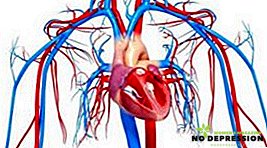 Vascular system. Taking plant-based medications helps widen blood vessels, which improves blood circulation. Cells begin to be actively supplied with oxygen, it is possible to normalize the pressure. In addition, the elimination of cholesterol plaques from the body is accelerated and the work of the heart is normalized.
Vascular system. Taking plant-based medications helps widen blood vessels, which improves blood circulation. Cells begin to be actively supplied with oxygen, it is possible to normalize the pressure. In addition, the elimination of cholesterol plaques from the body is accelerated and the work of the heart is normalized.- The organs of the respiratory system. The use of ginkgo biloba helps to prevent spasms of the respiratory tract and reduce the likelihood of asthmatic attacks. However, if the seizures do occur, then when fighting them, the plant is powerless.
- Cerebral vessels and the nervous system. Ginkgo biloba helps to increase the elasticity of blood vessels and has a positive effect on the state of the nervous system. In addition, the plant is effective in combating insomnia, depressive states of the body and improves the response.
Taking Ginkgo biloba disrupts the formation of radicals and the process of lipid peroxidation of cell membranes. In addition, it helps to expand the small arteries, improve the tone of the veins and regulates the blood supply to the vessels. Means with ginkgo biloba increase the body's resistance to hypoxia, especially brain tissue. This significantly slows toxic or traumatic swelling of the brain.
Plant Based Drugs
The basis of many drugs, which are used to treat various pathologies, are the leaves of the plant.
Ginkgo Biloba Forte

Biologically active food supplement from natural plant ingredients is considered Ginkgo Biloba Forte. It contains dried onions, green tea, pollen and leaves of Ginkgo Biloba. The use of such a drug allows to achieve the following results:
- the body's weather sensitivity is reduced and the state is improved during magnetic storms;
- mental and physical performance is activated;
- normal blood supply to the brain, myocardium and retina;
- anti-sclerotic effect is noted;
- the process of vascular regeneration is accelerated;
- immunomodulation and blood formation process improves.
The main contraindications to drug treatment are pregnancy, lactation, and intolerance to certain substances. Patients over the age of 14 are prescribed to take 1 tablet of the drug 1 time per day with meals. The duration of treatment with this medication is 4 weeks and, if indicated, it is recommended to repeat it 2-3 times a year.
Ginkgo Biloba Evalar

Ginkgo Biloba Evalar is a dietary supplement that is often prescribed to normalize the cerebral circulation. The drug is actively acting on the vessels of the brain, improves blood properties, contributes to the normalization of blood supply and increase mental performance. In addition, taking the medication helps to improve attention and memory, as well as fill the cells with the necessary amount of oxygen.
It is necessary to refuse to take the drug in the following cases:
- breastfeeding period;
- pregnancy;
- individual intolerance of individual substances.
Taking Ginkgo Biloba Evalar can be accompanied by the development of the following side effects:
- allergic reaction;
- dizziness;
- dyspeptic disorders;
- headaches.
The main form of release of the drug are tablets that must be taken in a specific pattern. Usually, Ginkgo Biloba Evalar is prescribed during meals or immediately after it several times a day. The tablet must be swallowed whole and drink water. At the doctor's prescription, the dosage can be increased, and the course of treatment lasts from 3 to 6 months. It is possible to notice the positive effect of the drug on the body already 4 weeks after the start of its administration.
Tablets from Doppelgerts

Doppelgerts active Ginkgo Biloba + vitamin B is a biologically active food supplement and source of flavonoglycosides, as well as a supplier of B vitamins to the body. It is recommended to take the drug to prevent circulatory disorders in the brain in elderly patients. In addition, this supplement helps to improve mental performance, as well as improve memory. The tool is effective for noise in the ears and dizziness and helps to significantly improve the quality of human life.
Usually, it is prescribed to take 1 tablet with a meal once a day. The duration of treatment is 2 months, after which a break for 4 weeks is taken. It is contraindicated to take such a tool during pregnancy and lactation, as well as children under 14 years.
Tincture of ginkgo biloba

To prepare alcohol-based ginkgo biloba tincture, you need 50 grams of dry leaves, pour 500 ml of high-quality vodka and leave the mixture to infuse for 2 weeks. After this filter and drink the infusion several times a day, 20 drops for two months.
The healing tincture of Ginkgo biloba leaves is allowed to be prepared in water. For this you need:
- pour 200 ml boiling water into a thermos and add 5 grams of dry leaves of the plant;
- infuse the resulting mixture for about two hours, then strain;
- means to use before eating 70 ml.
Ginkgo biloba leaves are recommended to add to green tea or drink with ginseng, which helps relieve fatigue and improve brain function.
Side effects and contraindications
Despite the high efficacy of ginkgo biloba in the treatment of various pathologies, in some cases it is better to abandon its use.
The following contraindications to treatment with plant extract are distinguished:
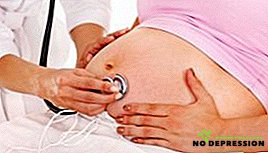 the period of pregnancy and lactation;
the period of pregnancy and lactation;- acute stage of gastritis and peptic ulcer;
- age of 12-18 years (taking into account the type of drug);
- pronounced circulatory disorders in the brain;
- bleeding tendency;
- the likelihood of allergic reactions.
Experts do not recommend taking drugs based on plants for a long time. In addition, it is not allowed to combine taking ginkgo biloba with anticoagulants and antiplatelet agents, including salicylic acid.
Taking ginkgo biloba can be accompanied by the development of some side effects:
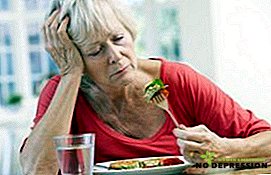 disruption of the digestive system;
disruption of the digestive system;- decreased appetite;
- vomiting and nausea;
- increased salivation;
- noise in ears;
- rashes of a different nature on the skin;
- headaches and dizziness.
Taking plant-based drugs in people with epilepsy can lead to more frequent epileptic seizures.
Ginkgo biloba for children
Children should be given drugs with the addition of ginkgo biloba from the age of 12, and some from the age of 18. Basically, preparations based on plant extract are used to treat attention deficit disorder, speech pathologies and improve cerebral circulation. To obtain a more pronounced effect, it is recommended to combine taking ginkgo biloba with vitamins of group B.
Interesting facts about the plant
It is believed that with the creation of favorable conditions, ginkgo biloba can live up to 2500 years. During the period of seed ripening, an unpleasant odor emanates from the plant; therefore, male specimens are most often planted in parks and gardens. Today, ginkgo biloba in the literal sense of the word conquers the world due to its healing properties.


 Vascular system. Taking plant-based medications helps widen blood vessels, which improves blood circulation. Cells begin to be actively supplied with oxygen, it is possible to normalize the pressure. In addition, the elimination of cholesterol plaques from the body is accelerated and the work of the heart is normalized.
Vascular system. Taking plant-based medications helps widen blood vessels, which improves blood circulation. Cells begin to be actively supplied with oxygen, it is possible to normalize the pressure. In addition, the elimination of cholesterol plaques from the body is accelerated and the work of the heart is normalized. the period of pregnancy and lactation;
the period of pregnancy and lactation; disruption of the digestive system;
disruption of the digestive system;